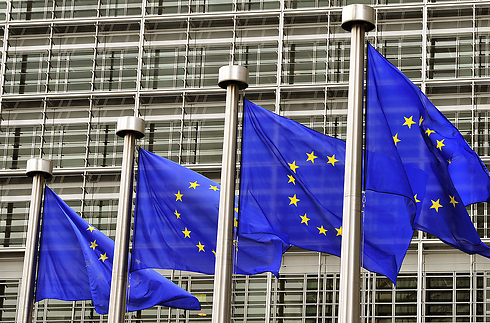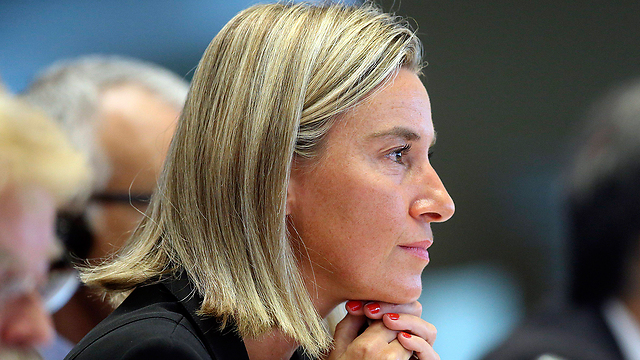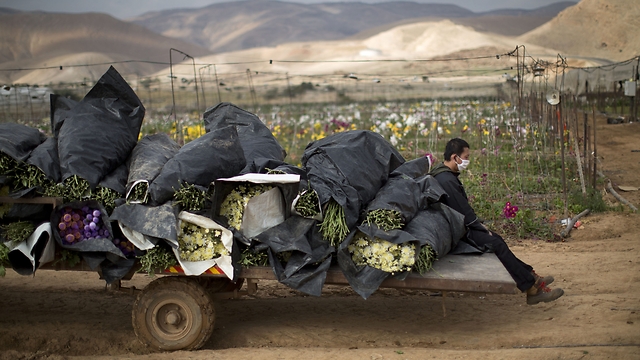
Illustration
Photo: AFP
A majority of European Union foreign ministers called on the EU's foreign policy chief to advance a proposal to mark products made in West Bank settlements. In a letter, the diplomats urged Federica Mogherini to take the lead and assure "correct and coherent implementation of EU labeling legislation."
The push by Belgian Foreign Minister Didier Reynders was supported by the top diplomats of the UK, France, Spain, Denmark, Ireland, Croatia, Malta, the Netherlands, Sweden, Portugal, Slovenia, Italy, Luxembourg, Finland, and Austria.
Supporters of Israel in the EU – including the foreign ministers of Germany, Poland, Czech Republic, Hungary, Bulgaria, Greece, Cypress, and Romania, among others – did not sign on to the letter.
After praising Mogherini for renewing the EU's commitment to the Middle East peace process, the letter draws the foreign policy chief's attention to a similar letter in 2013 to her predecessor, insisting the implementation of the union's legislation was an important component of the Mideast policy.
"Following the public commitment made by the Council in May and December 2012 and more recently in November 2014, we remain of the view that this is an important step in the full implementation of EU longstanding policy, in relation to the preservation of the two-state solution," the foreign ministers wrote in the letter.
They stressed that "European consumers must indeed have confidence in knowing the origin of goods they are purchasing. Green Line Israel and Palestinian producers will benefit from this."
Currently, only a handful of European Union nations have ordered their supermarkets to mark products made in Israeli settlements. As mentioned in the letter, the demand for a unified European policy on the labeling of West Bank goods had been raised several times in recent years.
The aforementioned attempt in 2013 – submitted by 13 foreign ministers to Catherine Ashton – was blocked by US Secretary of State John Kerry, out of concern it would harm his efforts to renew the negotiations between Israeli and Palestinians.
Recently, the EU's foreign office in Brussels worked on a proposal to order all 28 union members to mark settlement products. However the implementation was to occur state by state and it was unclear whether there would be a legal enforcement mechanism.
The intention, likely, was the symbolic gesture of the labeling guidelines. The Europeans have used the threat of product marking as an ad hoc sanction against the settlement enterprise.
Senior officials have said that if the next Israeli government continues construction in the West Bank, the first major decision by the union would include the labeling guidelines. Given the diplomatic freeze between Israel and the Palestinians and the ongoing tension between Jerusalem and Washington, there is considerable doubt the Americans would rush to Israel's defense this time around.
Senior officials in the Israeli foreign ministry harshly criticized the letters by the EU diplomats. "It is unclear why European states are discussing restrictions on Israeli products even before a new government is formed. This is unfair conduct."
The officials stressed that they warned the Europeans of the slippery slope involved in marking settlement products, which could end in a comprehensive boycott of Israeli goods. "The European consumer will not understand the differences and their psychological response might be to avoid Israeli products."


















